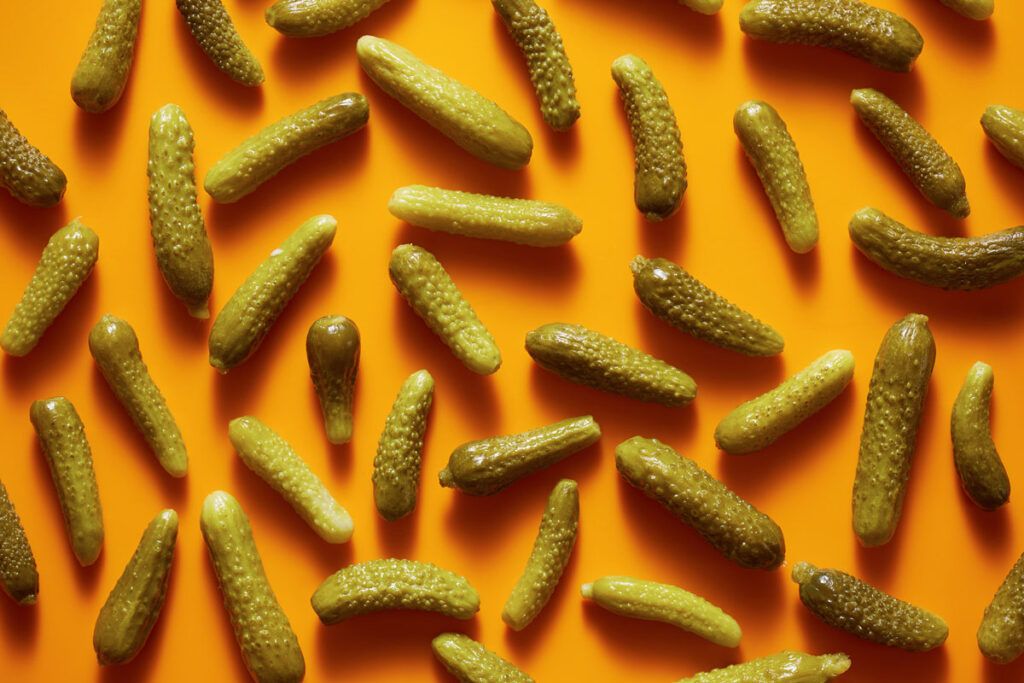Irritable bowel syndrome (IBS) is a long-term and chronic condition that affects your digestive system. It currently has no cure. But lifestyle measures, such as following certain dietary guidelines, can help you to manage the condition.
Probiotics are yeast and live bacteria that can be taken in the form of supplements. Several foods also contain probiotics, such as yogurt. They can help maintain the appropriate bacterial balance in your gut, which can also help you manage the symptoms of IBS.
How do probiotics help with IBS?

IBS can cause a bacterial gastrointestinal imbalance, which may lead to flare-ups. Probiotics are generally safe to use and can help restore the correct bacterial balance to improve IBS symptoms.
A 2022 research review found that probiotics may be beneficial for IBS because they slow can down the transit time of the colon. This can help improve the consistency of your stools and decrease the number of daily bowel movements.
Examples of probiotic foods include:
- yogurt
- kefir
- kimchi
- sauerkraut
- pickles
A 2020 meta-analysis states that taking a daily dose of probiotics for fewer than 8 weeks can help improve IBS.
What IBS symptoms can probiotics help with?
Consuming probiotics daily for fewer than 8 weeks may reduce bloating and abdominal discomfort in people with IBS.
The 2022 review mentioned earlier found that probiotics may help decrease the frequency and severity of digestive disorders that IBS can cause.
Probiotics may help reduce other symptoms of IBS, such as:
If you are concerned about IBS symptoms, consider speaking with a healthcare professional who can help identify your best treatment plan.
What are the side effects of probiotics?
Probiotics are generally safe to consume, according to experts.
Bloating, gas, upset stomach, and diarrhea are some common side effects of probiotics. But people with certain underlying conditions may have a higher risk of experiencing side effects after taking probiotics, such as developing a serious infection.
They may be unsuitable for people with underlying conditions that alter the immune system or those taking immunosuppressive medications. A doctor can advise you whether probiotics are safe for you.
Other treatment options
While probiotics may help improve IBS symptoms, doctors may recommend specific lifestyle measures, such as dietary changes. They may also prescribe medications to relieve any discomfort you may be experiencing.
Treatment options for improving IBS may include:
Diet
About 65% of people with IBS associate their flare-ups with consuming certain types of food.
A 2017 meta-analysis found that avoiding foods high in FODMAPs can improve IBS. “FODMAPs” stands for fermentable oligosaccharides, disaccharides, monosaccharides, and polyols, which are carbohydrates that can be difficult to digest.
High FODMAP foods may include:
- legumes, including lentils, chickpeas, and beans
- wheat and rye-based products, such as bread, pasta, and cereals
- dried fruit
- canned fruit
- fruit high in fructose, including apples, mangos, and peaches
- certain vegetables, such as cabbage, onions, and broccoli
- honey and corn syrup
- dairy products containing lactose, such as cheese, milk, yogurt, and ice cream
A doctor may recommend following a gluten-free diet for those with IBS and limiting the consumption of drinks containing caffeine or alcohol.
It is important to speak with a healthcare professional — such as a doctor or dietician, if you have access to one — before eliminating certain foods from your diet.
Medications
Medication may be prescribed to people with IBS, depending on the symptoms they are reporting. If you have diarrhea regularly, a doctor may recommend you take medications to help reduce your bowel movements.
Examples of IBS medications include:
- rifaximin (Xifaxan)
- loperamide (Imodium, Dioraleze)
- eluxadoline (Viberzi)
- dicyclomine (Bentyl)
If IBS causes abdominal cramps and discomfort to you, a doctor may recommend you take medications to relieve your symptoms, including:
- peppermint oil capsules
- antispasmodics, such as hyoscyamine (Symax)
- low doses of antidepressants, such as amitriptyline (Elavil)
Talk therapy
Stress can trigger IBS flare-ups, so a doctor may recommend you undergo talk therapy. This treatment can help to improve muscle relaxation and stress levels, which can reduce the risk of flare-ups.
Therapies for treating IBS can include:
- Relaxation training: This type of treatment can help relax your muscles. It can sometimes include meditation and yoga.
- Gut-directed hypnotherapy: This involves a therapist using hypnosis to improve your IBS symptoms during these sessions. Hypnosis is a trance-like state that can increase your focus or relaxation.
- Cognitive behavioral therapy (CBT): This therapy helps you reduce your stress levels to improve IBS and its symptoms.
If you need help covering the cost of medications, the free Optum Perks Discount Card could help you save up to 80% on prescription drugs. Follow the links on drug names for savings on that medication, or search for a specific drug here.
